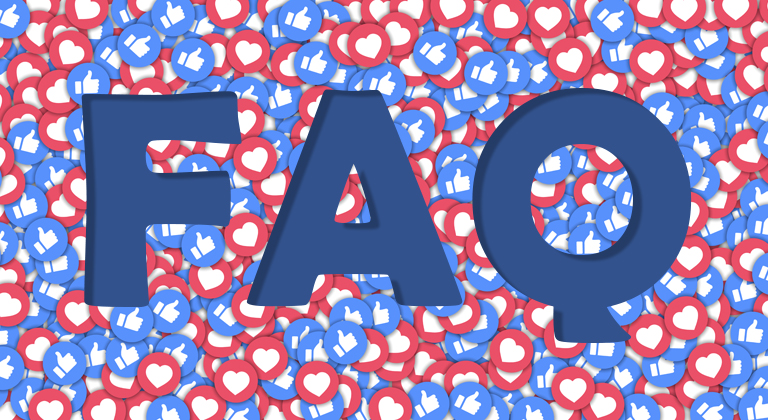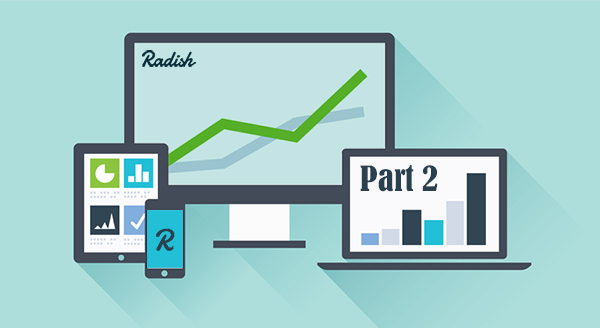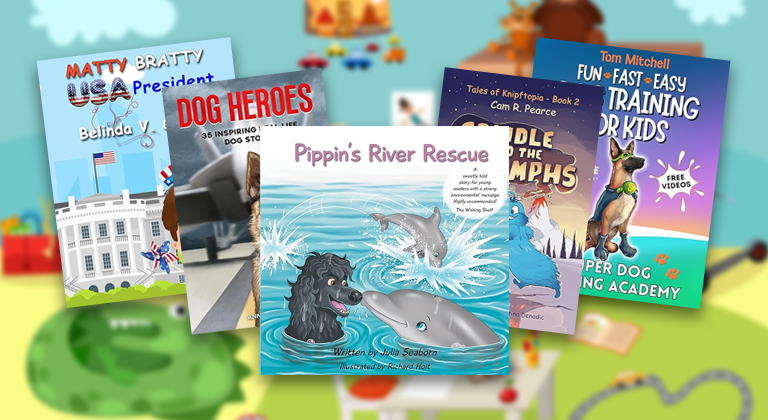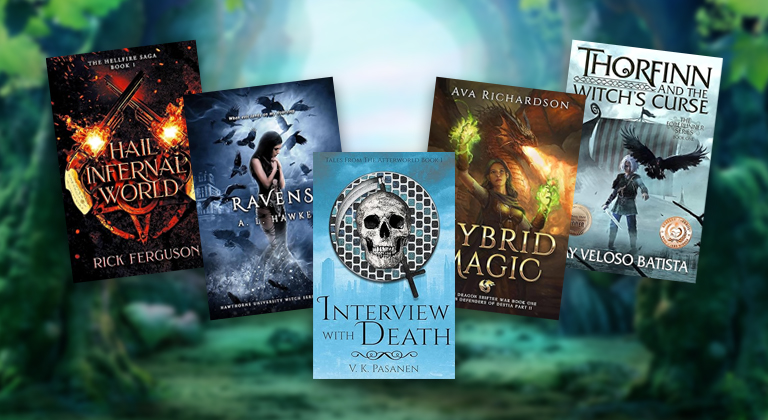From the Mailbox: Advertising on Facebook Questions
Our weekly author blogs cover topics to do with writing, marketing, and advertising books, but sometimes authors send us specific questions that we like to address. As we’ve done for Amazon related ad questions in the past, this week we’ve rounded up some of the most commonly asked questions about using Facebook for advertising, and Ginger has put together some answers which might will be useful to many of you.
Question #1
I was running a Facebook ad at $5 a day and getting a cost-per-click (CPC) of $0.19. I decided to double my spend, but my CPC immediately rose to $0.39. That means I’m paying twice as much for the same number of clicks! What did I do wrong?
One of the most frequent problems I hear about authors is that they just can’t scale their advertising. Every time they increase their ad budget on Facebook, the CPC climbs to match it – until they’re just throwing twice as much money at Facebook for the same results.
I can understand this being intensely frustrating, and you’re not alone in this problem. We’ve written about the challenges of scaling your ads before, but Facebook in particular seems to have a monopoly on this pain-point.
This is because Facebook is only as smart (or as dumb) as its algorithm, and when you create an ad at a certain budget, a lot of the decisions that algorithm ultimately makes are limited by that budget.
What does this mean, exactly? Well, when you have a $5 a day budget, Facebook uses its algorithm to try and find the most people within that $5 audience who’ll respond to that ad. When you then go and double the budget, Facebook continues to use THAT algorithm to find more people to serve the ad too, but there are so many more potential people that it could serve it to that it ends up costing them twice as much to reach them.
This is why it’s essential never to just increase the budget of your successful ads, but to duplicate them and create brand-new ads with that larger budget. Then, Facebook will have to teach the algorithm to search out those highly clickable customers as well, but this time they’ll have a larger pool of potential leads to search through; and that makes it easier (and cheaper) to find good targets.
This is the official reason, at least, for why Facebook ads with larger budgets generally get better results (and not just in the number of clicks, but in your CPC too.) It’s like fishing and casting a wider net – you’re more likely to land some whoppers.
I say the “official” reason because rumors persist that Facebook actually has a hierarchy behind the scenes that leads them to serve the ads with bigger budgets to a ‘better’ audience – and given that they can track every click and purchase through their algorithm, it’s not crazy to imagine them being able to do this. Obviously, it’s in Facebook’s best interested to provide better results to the bigger spenders, so it’s perhaps not surprising that things work out this way.
So, always start a new ad when you raise your budget, instead of trying to increase the budget of an already running one.
Question #2
My Facebook advertising account has been suspended, but I didn’t do anything wrong. What do I do?
Oooof! You have my sympathy. I had a 6-month battle to get my Facebook advertising account back from Chinese hackers and it was a long, arduous process. If you’re regularly spending a lot of money, Facebook will assign a real-life person to your account to help you with problems like this – but if your account is suspended, you can’t spend any money, and therefore they don’t want to hear from you!
Added to which, Facebook makes navigating their advertising accounts very difficult, so it’s sometimes impossible to figure out why your account is suspended. Did you do something wrong? Were you hacked? Some of the messages you read can suggest both, when in fact neither is the case.
Normally, if your Facebook advertising account gets suspended and you can’t figure out why, the quickest solution is to visit the Billing section of business.facebook.com and check there. Often if they can’t run your credit card, or they spot suspicious activity on your account, they’ll suspend your advertising and make you think something terrible is happening, when normally updating your credit card information or verifying your bank details through an automated process is all it takes to get back up and running.
If worst comes to worst, the quickest way I’ve found to contact a real, live human at Facebook is to go to facebook.com/business/help/support. Click ‘Get Started’ and you can sometimes access a live chat to help you with your problems. Why do I say “sometimes?” Because during busy periods, this chat line gets disabled, so it’s unavailable more times than not.
The good news is that you can workaround this by visiting the support page multiple times throughout the day – hopefully catching them at a period in which demand is low enough for them to display the chat features. It’s frustrating and inelegant, but normally I’ve been able to use it to eventually contact a real-life person.
Question #3
What’s the best way to generate an audience for my ads?
As I said before – Facebook is only as smart as its algorithm. That being said, its algorithm is very, very smart and getting smarter every day. Back when I first started advertising in 2015, I found the only way to get a low CPC on my ads was to build a lookalike audience from my mailing list. Today, you can often ‘create’ audiences using Interests and Behaviors to narrow who your ad gets presented to – and sometimes generate CPC results similar or even lower than those of a lookalike audience!
However, remember that it’s not about clicks – it’s about conversions. I’d rather take ten clicks that result in five sales than 100 clicks that result in 10 sales. Although I can create audiences that deliver good cost-per-click results, unless I can prove those clicks result in sales, it’s less than ideal.
When advertising your books using Traffic ads, that’s often impossible – or, at the very least, you’re left dealing with guesses rather than the tangible data provided through a platform like Advertising on Amazon. This is why I still rely on generating Lookalike audiences based on the top subscribers in my mailing list rather than selecting authors or genres in the Interests and Behavior options.
But there is a way to get the best of both worlds! Facebook offer something called Detailed Targeting Expansion in your audience generation options (under Ad Set) and this lets you generate a really specific lookalike audience (in my case, subscribers from my mailing list who’ve clicked on full price books) and then unleash the Facebook algorithm to find more people like that outside of the criteria I’d already provided.
What does that mean, exactly? Well, if Facebook notices certain similarities about people in your lookalike audience, clicking Detailed Targeting Expansion allows them to serve your ads up to similar people outside of your Lookalike audience if they think it’ll provide a good result.
In my experience, this option does a pretty good job of expanding my audience from, say, 3 million potential readers to 11 million – and yet the data I collect through BookReport and my sales dashboard suggests that they’re just as eager to buy my books as the smaller audience.
If you’re struggling with building an audience, it’s definitely something to consider – and remember that the more results you get from your advertising, the better you’ll be able to tweak your audiences as you develop and grow.
Ask the experts!
If you have a question for the Hidden Gems advertising or self-publishing experts, let us know! And if you want some more direct and specific help, don’t forget that we offer 1-on-1 consult calls that can really help supercharge the performance of your book or ad budget!











